On Friday morning I took my eight-year-old daughter for her first ride this summer. We drove down into the river valley, then up the other side, cresting a hill with panoramic views of the Sibillini Mountains on one side and the sea on the other. We descended past hay-bearing tractors down a steep track, through a wood, and into a vista of cornfields and orchards. In the stables that hugged the side of the hill, Sybil’s favorite white pony was already saddled, and her instructor was waiting with a smile.
As Sybil did her circuits in the paddock, I was lulled by the soporific murmur of the trainer’s voice (“Up down, up down… Seebil, lungo the reins… più lungo the reins…”). The birdsong contributed, as did the bark of a dog up the hill, the buzzing of insects and the mild thud of horse hooves in the sand. Soon my book lay on my lap, my eyes closed to a doze while the hot morning sunshine beat on my face.
It could only have been a few seconds, and then I woke, with all my senses alert, wondering at the world of colour in which I found myself and which I had earlier taken for granted – a deep blue, cloudless sky climbing above tall cypresses and oaks, their forest green shades shifting from light to dark to black, like a velvet ball dress shifting tones in a candlelit dance, with sometimes dazzling patches of emerald shining where the sun caught the foliage; in this sharp light every leaf and pine needle was distinct, the whole silhouetted against a fire of yellows and ochres where the sunflower fields and corn rows washed up like waves from the valley, lapping against the vines. And in the distance, etched against the dark blue were the mediaeval towers and churches of hilltop villages, adding a timeless quality to the scene.
There was nothing here out of the ordinary, in fact what I was doing, waiting for my daughter to finish a riding lesson, was inherently dull; I had no tasks to perform or useful matters to think about; for a putative writer it was an hour stolen from the day – yet at that moment I wished to be nowhere else. If I could have frozen the scene I would have stayed there fascinated for hours. I supposed I was experiencing the gentle pleasure I have sometimes heard described as “being there”.
The veils of white dust, thrown up as Sybil trotted past, did nothing to dim the clarity, either of the scene itself or my perspective of it. It was part of the natural movement, as vivid as the liquid eyes of the horse, the swish of its tail, the lope of the instructor’s dog as it followed new scents along the line of the paddock. The timelessness that I was enjoying was nothing less, I suddenly realized, than the Kairós of the ancient Greek philosophers that I had just been reading about in the book on my lap: “the quality of time rather than its quantity,” as the author emphasised, “the particular significance for an individual” – i.e. the opposite of Chrónos, “the dimension and duration of time”, or as my daughter puts it, “clock time.” For the moment clock time had stopped.
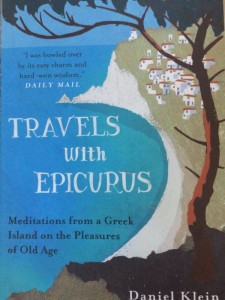 The book I had serendipitously chosen to bring with me, Travels with Epicurus – Meditations from a Greek Island on the Pleasures of Old Age by Daniel Klein, as well as being wise and witty and gently humorous, was clearly apposite. My friend, Laurence Browne, who is a scholar of Synchronicity, would most certainly have approved.
The book I had serendipitously chosen to bring with me, Travels with Epicurus – Meditations from a Greek Island on the Pleasures of Old Age by Daniel Klein, as well as being wise and witty and gently humorous, was clearly apposite. My friend, Laurence Browne, who is a scholar of Synchronicity, would most certainly have approved.
It was particularly synchronous because of the day. It was my birthday. I had become 62, an age that very few of my immediate forbears for one reason or another have got beyond. I am determined to buck the trend of course and am planning an extravagant 63rd birthday party and many more after that – but this year has been, for one reason or another, a time of contemplation. Retirement brings choices. How I should age has become a real question. Should I continue in the vein of the achievers, the “forever youngsters” as Daniel Klein describes them, refusing to let age slow down ambition, work, lifestyle and round the clock activity, keeping the pressure gauge at full throttle? So far that is what I have been doing, if anything increasing the work pace in retirement, at the same time ratcheting up the fitness and exercising routines to stay fit enough to maintain a full time working/writing life.
Wrong priority, cautions Daniel Klein in his charming book. Follow Epicurus is his suggestion. Step out of the world of commerce and politics. Focus on the simpler pleasures that the old Greek philosopher tells us are the only ways to find happiness: the company and conversation of friends, the enjoyment of intellectual exploration for its own sake, the abjuring of extravagant desires, the contemplation of beauty, living a life within means, never wanting more than satisfies the appetite, and being one with Nature. In other words, slowing the hurtling course of Time, folding past, present and the future, memory and desire into the pleasure of a still moment.
My experience that day on the hill was hardly revelatory, certainly not a Damascene epiphany. All I was doing was admiring the scenery, but the synchronicity concentrated my mind and for the rest of the day I rather consciously focused on simple pleasures rather than work related tasks. I accompanied Hong Ying to the market and enjoyed the shopping, the banter with the villagers, the freshness of the vegetables; when I got home I made lunch, a Sicilian caponata, absorbing myself into getting each ingredient right. Somehow we were all more relaxed – lunch became a social event rather than a routine of the day. After lunch as Sybil and Hong Ying had a siesta I did my exercises slowly, relishing them, savouring even the pain; that was ‘being there’ all right. We sat outside doing the birthday cake routine – actually an apple torta with a candle in it – and made a party though there were only the three of us. In the evening we had a pizza outside in the beautiful square of Servigliano, just the three of us again, a family having a treat, before going off to watch a production of Lysistrata in an old Roman theatre.
And that experience too turned into a folding back of time. The Lysistrata we saw was of our day – Aristophanes’ comedy played as a Cabaret cum puppet show by a total of four actors, three male and one female in the eponymous role. It was brilliant and slick, moving effortlessly from bawdy slapstick to high tragedy – the Italian audience cackled and cried with laughter, and so did we, though we could not understand the language; what surprised me though was the ease with which these actors turned burlesque into tragedy. Under the pantomime skirt of peace that Lysistrata draped over the whole stage, Twenty First Century War suddenly erupted in a horror of lights and explosions and dying cries, and at the end when the actors stripped the puppets of their clothes, indicating that citizens could orgy again now that Lysistrata had won her peace, the wooden frames left behind transformed into crosses when the lights went out and the play closed in a military cemetery with remembrance prayers for the dead . I suspect Aristophanes would have approved. His play was fundamentally serious, literally a play on life and death. As we had been, the first audiences in Athens would have been manipulated by clever stage craft.
For me, I felt a telescoping of time, akin to my experience in the paddock in the morning. I could not stop myself thinking of those older audiences who had sat on these same stone seats where we were and who had been as moved as we had been by the same words. Provincial as this town was, Lysistrata would almost certainly have been in the canon of plays performed here 2000 years ago when these broken stones were a towering theatre topped by statues of the gods.
In fact this grove of trees, stars above us, sunflower fields around us, had the feeling of an ancient shrine. We had arrived early and seen it in daylight – the sun descending on the hills, shadows forming, actors behind stage limbering their muscles for the acrobatics of the performance, the star doing a last circuit of the auditorium checking entry points and exit points for her surprise finale entry at the end, producers’ children lampooning among the puppets on the set. There was a wonderful continuity. An ancient Roman theatregoer going backstage would have seen the same.
As, show over, we maneuvered among headlights through the field that served as a car park, I thought what a good day it had been. A simple day. A happy day. An Epicurean day. Best birthday for a long time .
I thought: I can handle this Epicurean simplicity. One day I might take it up. It’d certainly be healthy. Live longer maybe. Certainly get through to 63.
Worth thinking about.
One day perhaps …
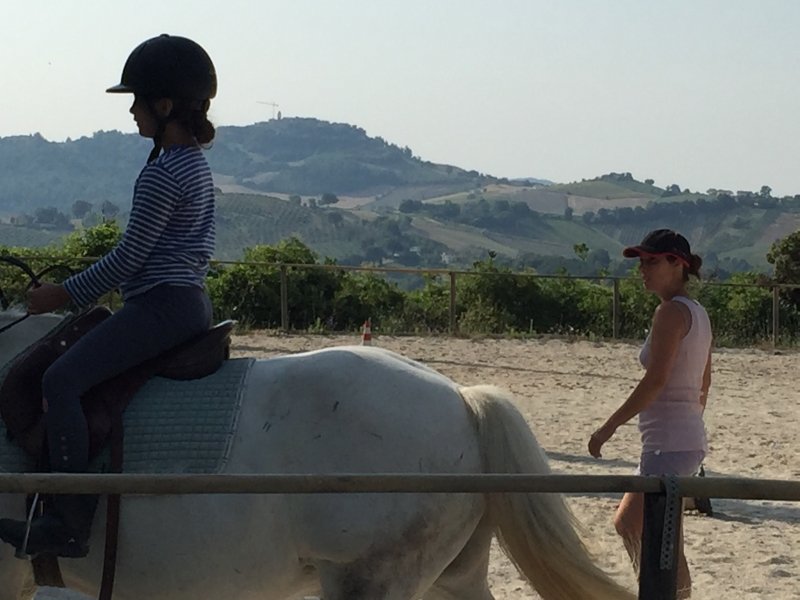
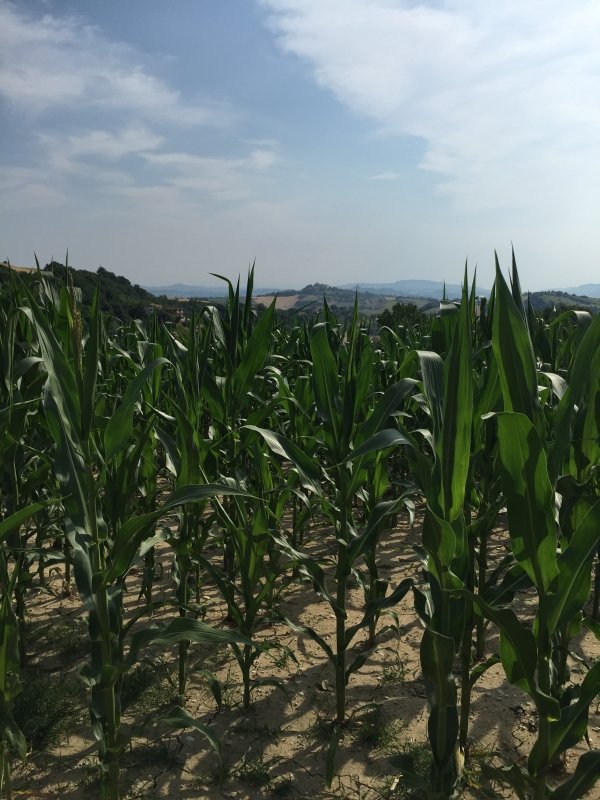
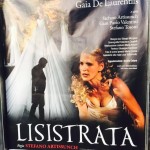
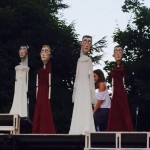
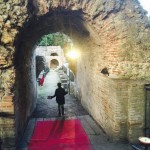
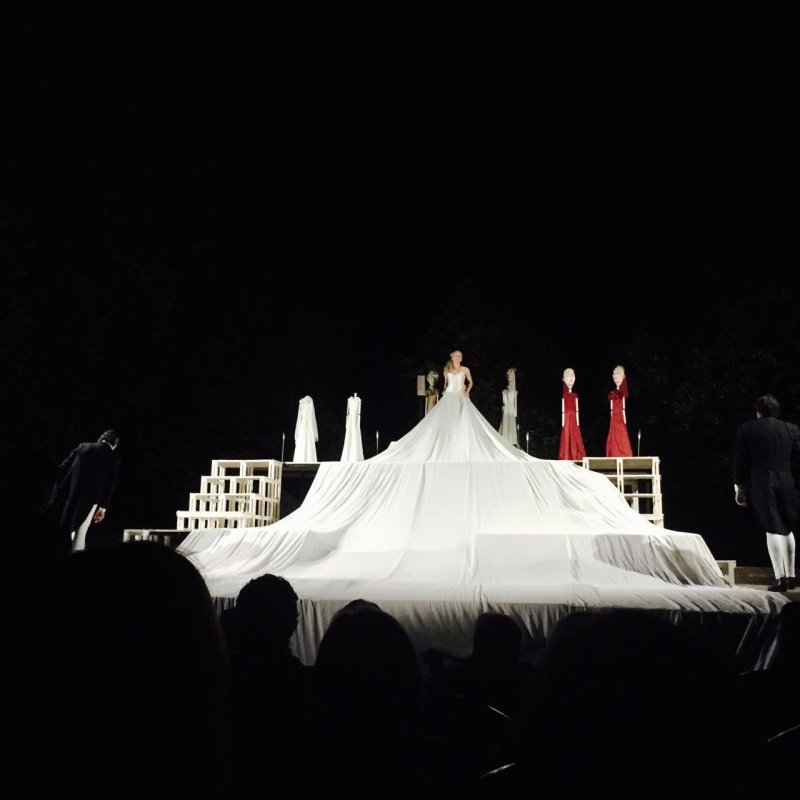


Leave a Comment